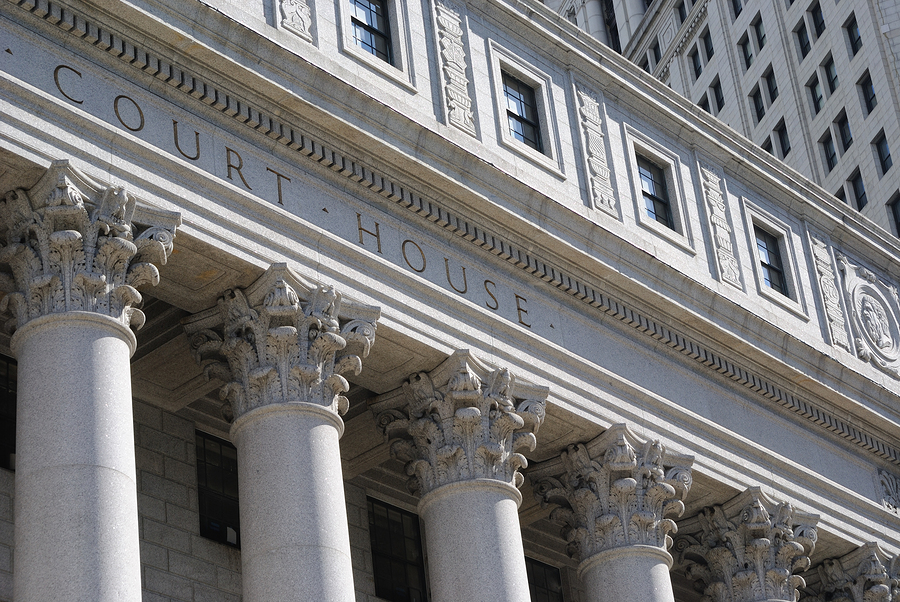Chubb subsidiary Federal Insurance Co. does not have to pay $3.3 million that medical device services firm Mesa Laboratories Inc. wants to fund a settlement over its violations of the Telephone Consumer Protection Act (TCPA).
The U.S. 7th Circuit Court of Appeals this week upheld a 2020 opinion by the U.S. District Court in Illinois, agreeing that the Federal policy exclusion for claims arising from the TCPA does in fact cover both statutory and common law claims where the underlying conduct is the same.
Mesa accepted that the policy exclusion did apply to statutory claims against it, but argued that it did not apply to common‐law claims arising from its TCPA‐violating conduct. Common law claims are ones based on court precedents as opposed to ones set forth by written laws.
Mesa was sued for sending unsolicited fax advertisements promoting its dental industry services. In 2018, a Chicago‐area dentist filed a class‐action lawsuit against Mesa in federal court for sending the unsolicited fax advertisements in violation of the TCPA and the Illinois Consumer Fraud and Deceptive Business Practices Act (ICFA). The dentist also alleged that Mesa’s conduct constituted common‐law conversion, nuisance, and trespass to chattels for Mesa’s appropriation of the recipients’ fax equipment, paper, ink and toner.
Federal declined to provide Mesa with a defense because it contended that the suit and its claims were excluded from coverage under its liability policy.
To resolve the claims, Mesa agreed to pay the dentist $3.3 million. Mesa then filed suit against Federal, alleging breach of contract, bad faith, and improper delay and denial of claims as it sought to recover the $3.3 million and legal costs.
Mesa’s liability insurance policy from Federal includes an Information Laws Exclusion that states that the policy “does not apply to any damages, loss, cost or expense arising out of any actual or alleged or threatened violation of: . . . the Telephone Consumer Protection Act (TCPA) of 1991 (or any law amendatory thereof) or any similar regulatory or statutory law in any other jurisdiction. . . . [or] any other regulatory or statutory law in any jurisdiction that addresses, limits or prohibits the collecting, communicating, disposal, dissemination, distribution, monitoring, printing, publication, recording, sending or transmitting of content, information or material.”
Federal argued that because the dentist’s claims arose out of an alleged TCPA violation, they fall under the Information Law Exclusion.
Mesa said the exclusion does not apply to the dentist’s common law claims of conversion, nuisance, and trespass to chattels. Under Illinois law, if even one claim is covered, then the insurer has a duty to defend the entire suit.
In January 2020, the district court sided with Federal and concluded that the Information Laws Exclusion barred all of the claims because both the common law and statutory (TCPA, ICFA ) claims arose out of the same conduct of sending the unsolicited faxes.
The lower court denied Mesa’s motion to vacate the judgment. Mesa appealed.
Citing one of its own past decisions, the 7th Circuit court said “the ‘arising out of’ phrase presents a ‘but‐for’ inquiry: if the plaintiff would not have been injured but for the conduct that violated an enumerated law, then the exclusion applies to all claims flowing from that underlying conduct regardless of the legal theory used.”
None of the dentist’s injuries would have occurred but for Mesa’s sending unsolicited fax advertisements, so the Information Laws Exclusion applies to all of Mesa’s claims, the court concluded.
The case is Mesa Laboratories v. Federal Insurance Co. (No. 20-1983).
Was this article valuable?
Here are more articles you may enjoy.


 Johnson Controls Unit to Pay $750M to Settle ‘Forever Chemicals’ Lawsuit
Johnson Controls Unit to Pay $750M to Settle ‘Forever Chemicals’ Lawsuit  Vintage Ferrari Owners’ Favorite Mechanic Charged With Theft, Fraud
Vintage Ferrari Owners’ Favorite Mechanic Charged With Theft, Fraud  Supplemental Claims Don’t Need to Include Damage Estimates, Fed Appeals Court Says
Supplemental Claims Don’t Need to Include Damage Estimates, Fed Appeals Court Says  Viewpoint: How Generative AI Enables a Brighter Claims Future in 2024 and Beyond
Viewpoint: How Generative AI Enables a Brighter Claims Future in 2024 and Beyond 